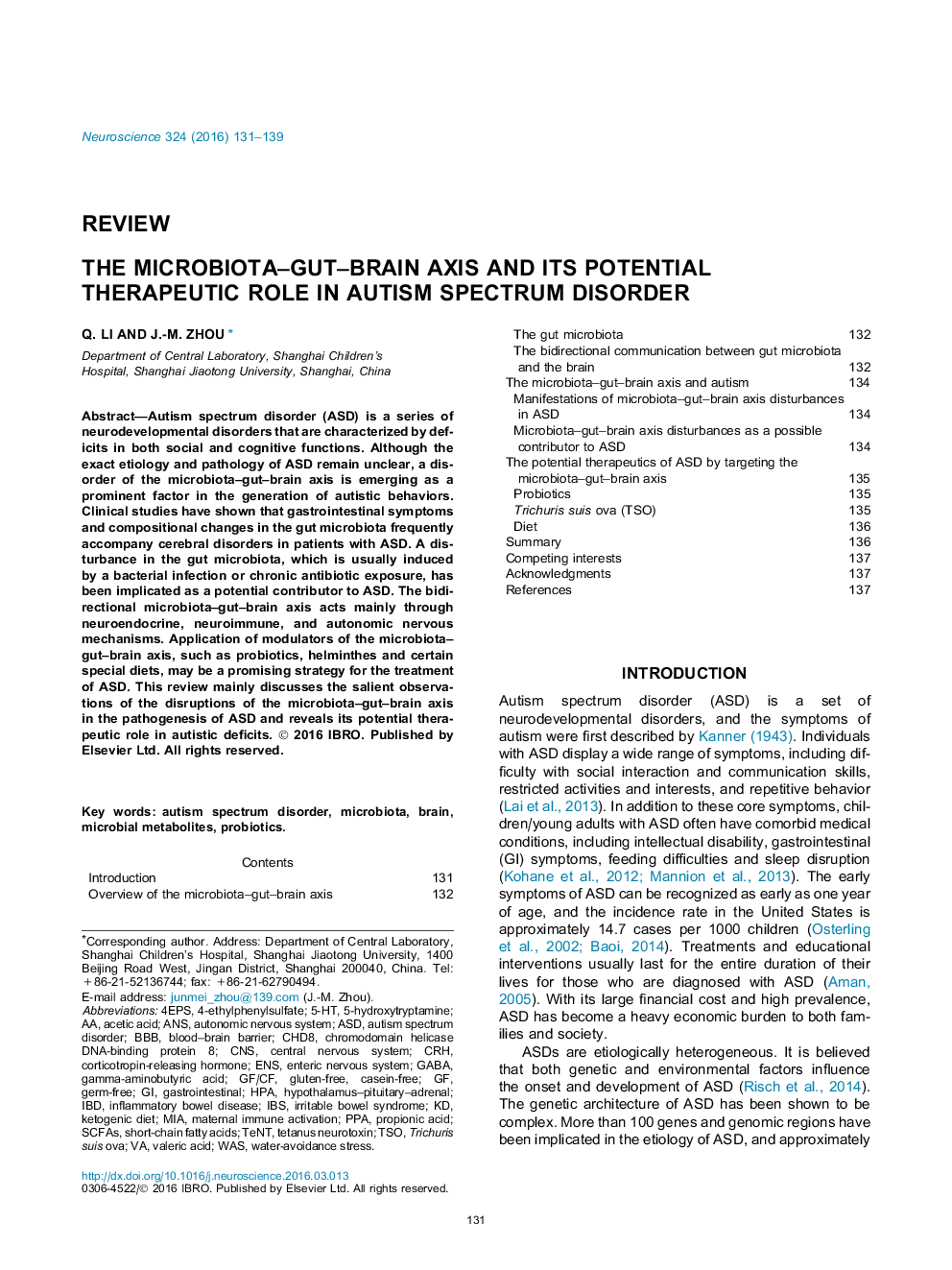| Article ID | Journal | Published Year | Pages | File Type |
|---|---|---|---|---|
| 4337301 | Neuroscience | 2016 | 9 Pages |
•The microbiota–gut–brain axis is a bidirectional neurohumoral communication system.•Autistic neurodevelopmental deficits are frequently associated with gastrointestinal symptoms and gut microbiota dysbiosis.•Disturbance of the gut microbiota has been implicated as a possible contributor to ASD behavioral deficits.•Modulating the microbiota–gut–brain axis is a promising strategy for treatment of ASD symptoms.
Autism spectrum disorder (ASD) is a series of neurodevelopmental disorders that are characterized by deficits in both social and cognitive functions. Although the exact etiology and pathology of ASD remain unclear, a disorder of the microbiota–gut–brain axis is emerging as a prominent factor in the generation of autistic behaviors. Clinical studies have shown that gastrointestinal symptoms and compositional changes in the gut microbiota frequently accompany cerebral disorders in patients with ASD. A disturbance in the gut microbiota, which is usually induced by a bacterial infection or chronic antibiotic exposure, has been implicated as a potential contributor to ASD. The bidirectional microbiota–gut–brain axis acts mainly through neuroendocrine, neuroimmune, and autonomic nervous mechanisms. Application of modulators of the microbiota–gut–brain axis, such as probiotics, helminthes and certain special diets, may be a promising strategy for the treatment of ASD. This review mainly discusses the salient observations of the disruptions of the microbiota–gut–brain axis in the pathogenesis of ASD and reveals its potential therapeutic role in autistic deficits.
